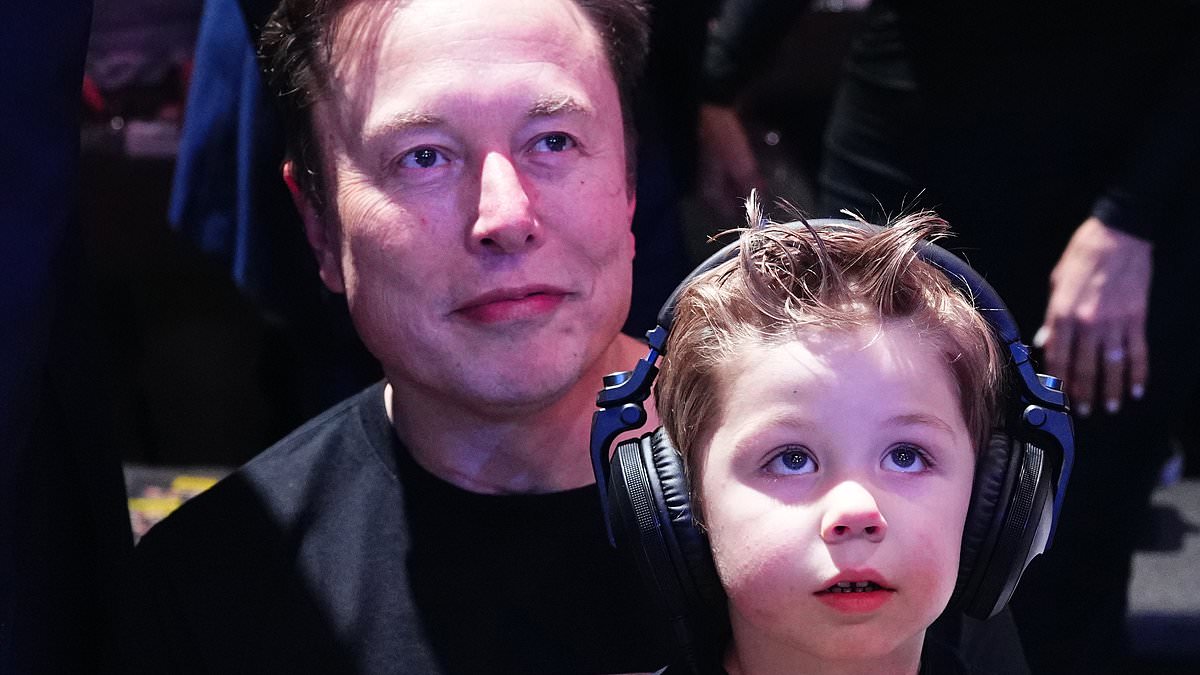A phenomenon that Elon Musk has called ‘the greatest risk to the future of civilization’ just got worse, according to a new study.
Musk – who has 14 children with four women – has for years warned about population collapse caused by baby bust in America and the West.
The consensus was that countries needed a fertility rate of 2.1 children per one woman to continue growing – a concern given that the US’s is at 1.62.
But now researchers say that fertility target may be too low.
A new study found populations may need a fertility rate of 2.7 children per woman to avoid long-term extinction.
The team said the original estimate didn’t fully account for variables like mortality rates, the male-to-female ratio, the probability that some adults never reproduce, and random fluctuations in family size.
Musk, who boasts of ‘always banging the baby drum,’ has been sounding the alarm on worldwide population collapse for years, claiming it will be ‘the biggest problem the world will face in 20 years.’
The billionaire-turned-politician previously said that low birth rates result in fewer workers, increased debt, strained healthcare and pension systems, and total social unrest.

Elon Musk, who has previously warned about ‘population collapse’, seen with his son X Æ A-Xii
Diane Cuaresma, one of the study’s authors, said: ‘Considering stochasticity [unpredictability] in fertility and mortality rates, and sex ratios, a fertility rate higher than the standard replacement level is necessary to ensure sustainability of our population.’
The team concluded that true population sustainability – as well as the sustainability of languages, cultural traditions, and diverse family lineages – requires rethinking conventional fertility targets.
Writing in the journal Plos One the team said: ‘The underpopulation crisis has been a serious threat to the sustainability of developed countries.
‘The worldwide total fertility rate – the number of children per woman – has dropped from 5.3 in the 1960s to 2.3 in 2023.’
According to the latest data the Republic of Korea has the lowest fertility rate in the world at just 0.87.
Several countries do still have a fertility rate above 5 – including Niger and Chad.
Meanwhile fertility rates have plunged in every local authority in England and Wales over the past decade.
Alarming figures laying bare the ‘baby bust’ reveal some boroughs have seen a 60 per cent decline in women having children since 2013.

Sue and Noel Radford, who live in Morecambe, boast Britain's largest family with a brood of 22 children
Experts fear the freefalling rates will trigger an 'underpopulation' crisis, potentially leaving Britain reliant on immigration to prop up our economy.
Women in England and Wales, on average, now only have 1.44 children - the lowest since records began in the 30s and half of levels seen during the mid-60s baby boom.
Almost a third of all 591,000 babies born were to foreign mothers in 2023, the latest year with full data available.
There are concerns that if fertility rates continue to plunge across the world, it may leave countries with too few younger people to work, pay tax and look after the elderly.
Figures also show that China's population is decreasing, standing at 1.408 billion at the end of 2024 – a decline of 1.39 million from the previous year.
Other East Asian countries are in a similar position – including Japan, South Korea and Hong Kong – which have seen their birth rates plummet.
The reasons in many cases are similar, with rising costs causing young people to put off or rule out marriage and children while pursuing higher education and careers.
The team concluded: 'While the human population is unlikely to face immediate extinction, our findings provide a framework for extinction avoidance.'
Musk has been warning about a decline in births for years.
Read More
Shocking new study confirms Elon Musk's worst fear about life in the US

In January, took to his social media site, X, to share a fertility rate chart published by the journal The Lancet. It showed significant declines for both the US and the UK since the year 1900.
'This is how great civilizations throughout history have ended,' Musk wrote.
'People assume it was due to conquest, but it was actually often simply too much prosperity leading to low birth rate and population collapse, which ultimately enabled them to be conquered.'
In a separate post from December, 2024, he said: 'Extreme birth rate collapse is the biggest danger to human civilization by far.'
But many experts have said Musk's fears may be overstated.

Musk - who has 14 children with four women - has for years warned about population collapse caused by baby bust in America and the West. Pictured is one of the four women, Ashley St. Clair who had Musk's latest child
According to recent projections, the global population is expected to keep growing until it peaks around the mid-2080s, reaching approximately 10.3 billion, before experiencing a gradual decline to about 10.2 billion by 2100.
Joseph Chamie, a consulting demographer and a former director of the United Nations Population Division, told CNN in 2022: '[Musk is] better off making cars and engineering than at predicting the trajectory of the population.
'Yes, some countries, their population is declining, but for the world, that's just not the case.'
He added that 'virtually every developed country' has seen birth rates below two percent, but that is the way 'it has been for 20 or 30 years.'
Ken Johnson, a professor of sociology at the University of New Hampshire, told CNN the rate is down in the US due to a 'significant' decline in teen births.
'Most demographers would see that as a good thing,' he said.
At the same time, other experts have warned that the US is headed for a so-called 'underpopulation crisis' by 2050 — when too few people are born to support the current economic system.
